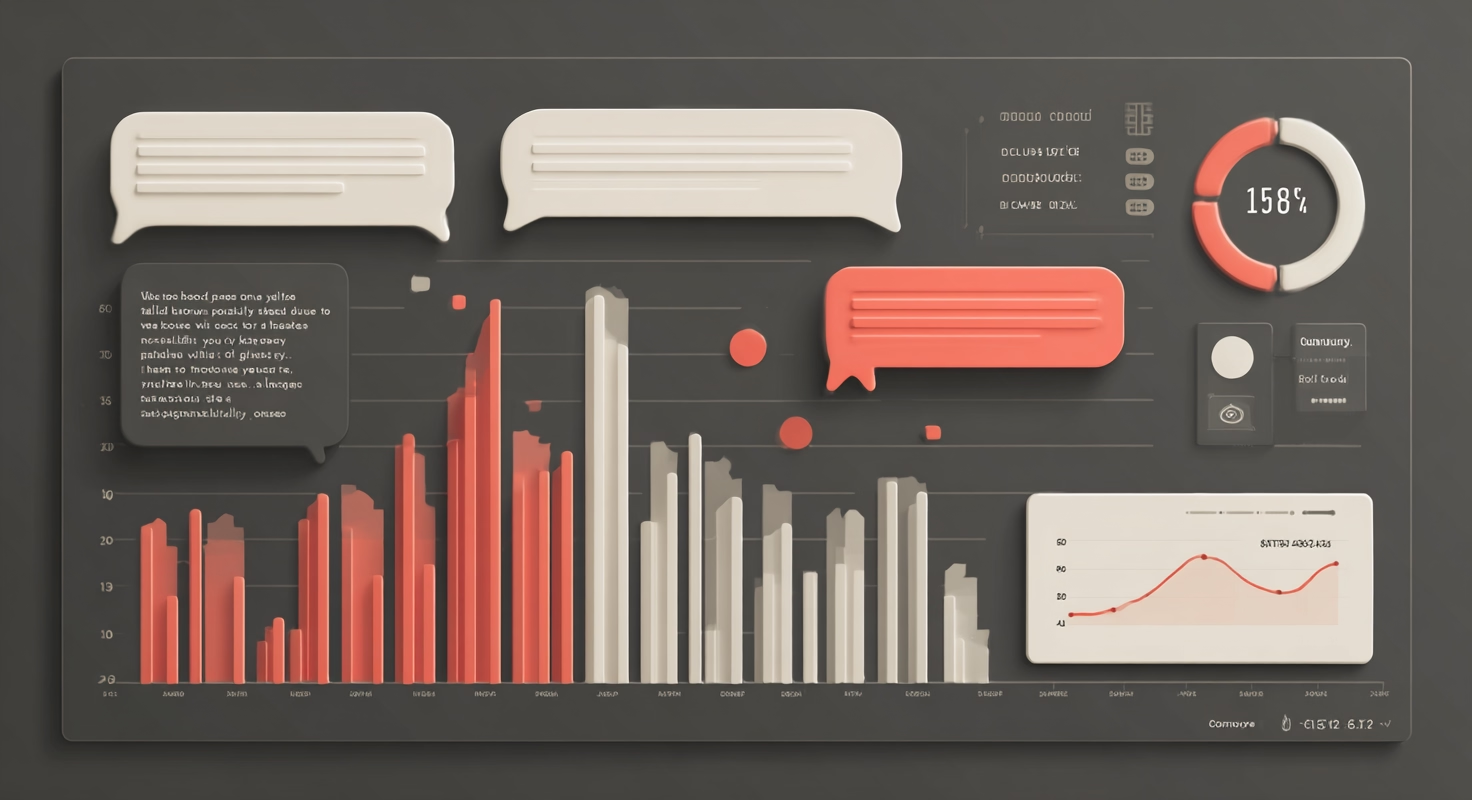Predictive intelligence transforms customer service by combining AI with predictive analytics tools and insights. Leveraging predictive analytics software, businesses can anticipate customer needs, ensuring proactive and personalized support.
With predictive data analytics, vast customer data turns into actionable insights, enhancing agent performance and satisfaction. Adopting AI predictive analytics helps businesses deliver superior interactions, setting new standards in service excellence.
In this blog, we explored what is predictive analytics and its role in transforming AI-driven customer service. By leveraging predictive analytics tools and software, businesses can anticipate customer needs, enhance experiences, and boost efficiency. Embrace predictive analytics solutions to stay competitive in today’s customer-focused landscape.
Experience Convin’s predictive intelligence transforms customer service. Book a demo now!
What is Predictive Intelligence in Customer Service?
Predictive intelligence is reshaping how businesses approach customer service by combining AI and predictive analytics. It empowers teams with actionable insights to anticipate and address customer needs proactively.
Predictive intelligence is the application of AI and predictive analytics to forecast customer behaviour. Unlike traditional analytics, it combines predictive analytics tools with real-time insights to enhance decision-making. By leveraging predictive analytics software, businesses can identify potential issues before they arise.
Why Predictive Intelligence Matters in Customer Service
Customer service teams benefit from predictive analytics solutions that reduce response times and improve service quality. For instance, predictive data analytics helps agents address customer needs more effectively. With predictive intelligence, service becomes proactive, leading to higher satisfaction and retention rates.
By adopting predictive intelligence, businesses can deliver faster, higher-quality support, fostering satisfaction and loyalty.
Predictive Analytics Across Industries: Healthcare and Marketing
Understanding the predictive analytics definition is crucial for grasping its transformative potential. At its core, predictive analytics involves using historical data and machine learning to forecast future trends and behaviors. This approach is widely adopted in various industries, including predictive analytics in healthcare, to enhance patient care and outcomes.
In the marketing domain, predictive analytics in marketing helps businesses analyze consumer behavior to craft personalized campaigns. By combining these insights with the broader predictive analytics definition, organizations can drive efficiency, improve customer engagement, and make data-driven decisions in both healthcare and marketing contexts.
Driving Impact with Predictive Analytics
The role of predictive analytics in healthcare extends to early diagnosis and treatment planning, significantly improving patient experiences. Its predictive capabilities ensure better allocation of resources, from managing patient inflows to forecasting healthcare demands.
Similarly, predictive analytics in marketing empowers businesses to anticipate customer preferences and target audiences effectively. With a clear predictive analytics definition, it becomes evident how these insights optimize strategies, improve ROI, and revolutionize marketing efforts.
Predictive intelligence is innovating customer service by enabling businesses to anticipate needs and deliver proactive solutions. By leveraging tools grounded in the predictive analytics definition, industries like healthcare and marketing continue to benefit from improved outcomes, personalized experiences, and data-driven efficiency.
Core Components of Predictive Intelligence
Predictive intelligence relies on advanced technologies to enhance customer service operations. Its core components combine AI, machine learning, and data-driven insights to deliver proactive support.
- AI-Driven Predictive Analytics: AI predictive analytics turns customer data into actionable insights. Tools like Convin’s Agent Assist use machine learning predictive analytics to guide agents during interactions. They analyze historical and real-time data for accurate behavior predictions.
- Data Sources for Predictive Intelligence: Robust data inputs like customer history, omnichannel inter
- actions, and CRM insights fuel predictive intelligence. Predictive analytics software processes this data to forecast trends and improve outcomes.
- Role of Machine Learning: Machine learning enhances predictive intelligence by identifying patterns in data. With continuous learning, AI predictive analytics delivers precise insights for proactive decision-making.
- Integration with Customer Service Systems: Predictive intelligence integrates with CRMs and other customer service tools. Embedding predictive analytics tools streamlines workflows, making adoption seamless and efficient.
- Real-Time Insights: Real-time insights from predictive data analytics provide agents with instant guidance. These prompts improve responsiveness, customer satisfaction, and issue resolution.
Predictive intelligence, powered by AI and machine learning, drives efficiency and personalizes customer service.

This blog is just the start.
Unlock the power of Convin’s AI with a live demo.

Applications of Predictive Intelligence in Customer Service
Predictive intelligence has become a game-changer in customer service, enabling businesses to anticipate and address customer needs proactively. By leveraging advanced predictive analytics tools and software, organizations can enhance agent performance, streamline operations, and deliver exceptional customer experiences.
1. Enhancing Agent Performance
Predictive intelligence boosts agent productivity with real-time coaching and actionable feedback.
- Live Coaching: Provides instant guidance during calls.
- Insightful Feedback: Highlights performance gaps.
- Tailored Training: Improves resolution rates.
Empowering agents ensures consistent, high-quality performance.
2. Elevating Customer Experience
Deliver personalized, proactive service with predictive intelligence.
- Personalized Interactions: Tailored to customer preferences.
- Proactive Service: Resolves issues before escalation.
- Loyalty Building: Seamless, anticipatory support.
Predictive insights foster customer satisfaction and loyalty.
3. Boosting Operational Efficiency
Predictive analytics software helps allocate resources effectively and reduces average handling time (AHT). Streamline workflows and optimize resources with predictive intelligence.
- Task Automation: Frees agents for complex issues.
- Demand Prediction: Manages call volumes effectively.
- Workflow Optimization: Reduces response times.
Enhanced efficiency saves time and improves service quality.
4. Proactive Problem Solving
Predictive data analytics highlights dissatisfaction patterns, enabling teams to intervene at the right time.Address issues before they arise using predictive analytics.
- Churn Prevention: Identifies at-risk customers.
- Trend Analysis: Resolves potential problems early.
- Complaint Reduction: Mitigates pain points in advance.
Proactive solutions create smoother interactions and reduce churn.
5. Data-Driven Decision Making
Leverage actionable insights for strategic improvements.
- Real-Time Analytics: Supports dynamic planning.
- Performance Tracking: Refines service strategies.
- Accurate Forecasting: Informs future needs.
Actionable insights from predictive intelligence enable smarter strategies and improved customer service outcomes.

Predictive intelligence transforms customer service by enhancing agent productivity, personalizing experiences, and streamlining operations. Its proactive and data-driven approach sets the stage for exceptional service delivery.
Benefits of Predictive Intelligence for Call Centers
Predictive intelligence offers transformative benefits for call centers, enhancing efficiency, customer satisfaction, and overall performance. By leveraging AI and data analytics, it empowers businesses to deliver exceptional, proactive service.
- Streamlined Operations: Automates repetitive tasks, reducing agent workload and improving efficiency across workflows.
- Improved Response Times: Delivers real-time insights to agents, ensuring faster and more accurate resolutions.
- Enhanced Customer Retention: Identifies at-risk customers and enables proactive strategies to prevent churn.
- Personalized Customer Experience: Leverages data-driven insights to tailor interactions, boosting satisfaction and loyalty.
- Optimized Resource Allocation: Predicts call volumes and demand, ensuring balanced workloads and cost efficiency.
- Increased Revenue Generation: Identifies cross-sell and upsell opportunities using customer behavior data.
- Proactive Compliance Management: Monitors conversations in real-time to ensure adherence to regulations and reduce risks.
Predictive intelligence streamlines call center operations while improving customer experiences and retention. Embracing these solutions ensures a competitive edge and long-term success.
Improve agent performance with Convin’s automated coaching and personalized feedback.
How to Adopt Predictive Intelligence in Your Call Center
Adopting predictive intelligence starts with selecting the right tools that align with your call center’s needs. Look for predictive analytics software that offers scalability, flexibility, and ease of integration into your existing systems. Tools leveraging machine learning predictive analytics, like Convin, provide real-time insights and advanced features to empower your team.
Predictive analytics is highly versatile, with applications ranging from healthcare to customer service. In call centers, these tools analyze customer interactions to forecast behaviors, identify pain points, and recommend actionable steps. Ensure the software includes user-friendly interfaces, customizable dashboards, and robust reporting features for optimal utility.

Best Practices for Implementation
- Integrate Predictive Tools Seamlessly: Ensure that your chosen predictive analytics tools integrate smoothly with existing CRMs, telephony, and omnichannel platforms. This eliminates disruptions and creates a unified ecosystem for data-driven insights.
- Train Agents Effectively: Equip your agents with the skills needed to interpret and apply predictive data. Conduct regular training sessions to help them leverage real-time insights, improving their decision-making during interactions.
- Monitor Key Metrics: Use predictive data analytics to track performance metrics like average handle time, customer satisfaction scores, and conversion rates. This data helps refine strategies and identify areas for improvement.
- Start Small, Then Scale: Begin with a pilot project to test the tools and assess their impact. Gradually expand their use across teams once you’re confident in the results.
- Commit to Continuous Improvement: Predictive intelligence evolves over time. Regularly update your software, fine-tune algorithms, and collect feedback from agents to maximize its potential.
Adopting predictive intelligence involves the right tools, agent training, and ongoing refinement. With commitment and the right approach, call centers can achieve significant efficiency, improved customer satisfaction, and enhanced performance.
How Convin Transforms Customer Service with Predictive Intelligence
Convin leverages advanced AI and predictive analytics tools to revolutionize customer service. Its innovative platform combines conversation intelligence, real-time agent assistance, and automated coaching to enhance agent performance and customer satisfaction.
Features of Convin’s Predictive Intelligence
- Real-Time Agent Assist: Provides live suggestions and prompts during interactions to ensure accurate and effective responses.
- Automated Coaching: Identifies performance gaps and offers personalized coaching sessions to improve agent skills.
- Conversation Intelligence: Analyzes customer interactions across channels, uncovering valuable insights to optimize service.
- Proactive Problem-Solving: Detects potential issues before they arise, enabling agents to address concerns promptly.
- Seamless Integration: Works effortlessly with existing systems, like CRMs and omnichannel platforms, for streamlined operations.
Benefits of Using Convin
- Improved Efficiency: Automates routine tasks and reduces response times, allowing agents to focus on complex issues.
- Enhanced Customer Experience: Offers personalized and proactive service, building loyalty and satisfaction.
- Actionable Insights: Provides managers with detailed analytics to refine strategies and improve overall performance.
By integrating Convin’s cutting-edge technology, businesses can harness the power of predictive analytics software to elevate customer service standards and achieve long-term success.
Upgrade your contact center with Convin’s AI-powered analytics for customer experiences.
Predictive Intelligence Future of Customer Service
Predictive intelligence represents the future of AI-driven customer service. It leverages predictive analytics tools and software to transform customer experiences and drive efficiency. By adopting predictive analytics solutions, businesses can achieve a proactive, customer-focused approach. Embrace the power of AI predictive analytics and take your call center to the next level.
Automate coaching and enhance customer interactions in real time. Request a demo.
Frequently Asked Questions
Q1: What types of data are used in predictive customer support?
Predictive customer support relies on data like customer interaction history, purchase behavior, CRM records, service logs, and social media activity. This diverse data enables accurate analysis, forecasting, and personalized engagement for improved service quality and customer satisfaction.
Q2: Can predictive intelligence reduce operational costs in call centers?
Yes, predictive intelligence reduces costs by automating repetitive tasks, optimizing resource allocation, and minimizing average handling time. These efficiencies streamline operations, allowing agents to focus on critical issues, leading to improved productivity and overall cost savings.
Q3: How can predictive analytics identify at-risk customers?
Predictive analytics uses data patterns, such as repeated complaints or changes in purchase behavior, to detect signs of dissatisfaction. By analyzing these patterns, businesses can proactively address issues and implement strategies to retain at-risk customers.
Q4: How does predictive intelligence integrate with existing customer service systems?
Predictive intelligence integrates seamlessly with existing systems like CRMs, telephony, and omnichannel platforms. It enhances functionality by analyzing data from these sources, providing actionable insights without requiring extensive changes to existing infrastructure.




.avif)




.avif)